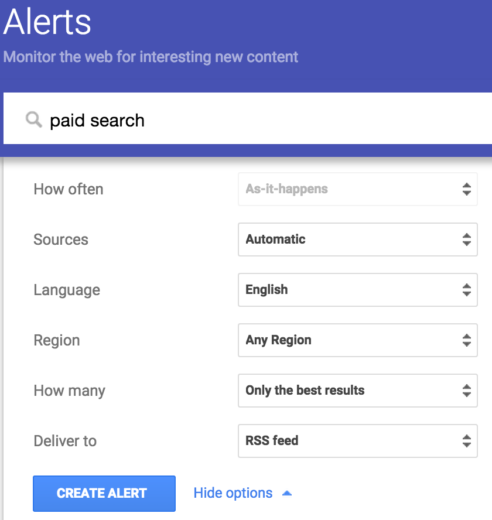Build And Sustain Successful PPC Relationships

While landing a new client can sometimes be viewed as the biggest hurdle in any marketing relationship, keeping the client happy and having a successful relationship is even more important. Sure, landing a client is a difficult task. You have to offer all the services they expect or need, have a pricing structure they’re comfortable with, and you’re usually up against stiff competition. While that’s no easy task, what good is winning the business if they’re out the door within a couple months?
Creating long-lasting, successful relationships builds a foundation for monthly revenue moving forward and establishes an excellent reputation in the industry. In this article, we’ll be discussing a few keys to building and sustaining a successful relationship with your client and how you can take a proactive approach to having a happy client.
Strategy Timeline
One of the first conversations with a new client is around PPC goals and how to reach these goals on a month-to-month basis. After identifying goals for the account, you should also take some time to speak with them about their PPC experiences, not only what they’ve tested in the past but what they’re open to testing in the future. Whether it’s Display, Remarketing, RLSA campaigns, LinkedIn or Facebook, our industry is always evolving and our clients want to be at the forefront. Most clients want to take a proactive approach to new platforms and new initiatives being rolled out across all engines and chances are, “being stagnant” is one of the reasons they left their previous agency.
One item you should consider doing at the beginning of a new relationship is sit down for a brainstorm and come up with a strategy timeline for the client. We’ll outline all new initiatives and when each should be launched in order of priority. Clients absolutely love this type of stuff as it shows you not only think outside the box to expand and improve the account, but you have a structured plan in place that they can refer back to internally.
Communication Is Key
Doing the bare minimum in terms of communication shows the client that you’re not truly engaged in the performance of their account. It’s important to have regular communication to build a trusting relationship. If you only have communication once a week on status calls, the client will feel like you’re only going through the motions. If you read an article on a PPC blog that’s relevant to their business, something as simple as passing it along to them shows you’re engaged and sparks further conversation.
You can also set up Google Alerts to stay connected with your client and the company. With that, Google will send you an email when the company is mentioned in an article. It’s a great way to stay up to date with the client and bring up relevant topics during your calls.

Also, try to build a somewhat personal yet professional relationship with your client. On your weekly calls, don’t just dive right into data and performance. It feels cold and unpleasant. Did your client just come back from vacation? Ask them about it. Try to find common interests you can briefly discuss to make the conversations enjoyable. If your client begins to have financial issues or performance issues, it’s a lot easier to cut a vendor they don’t really care for than the vendor they enjoy working with.
Reporting & Analysis
Our job as PPC experts is to not only report the data from the account we’re managing, but to provide analysis and next steps based upon that data. Each section of your report should provide analysis on the data and why we’re seeing certain results. For example, if click-thru rate is up 20% week over week, the client will want to know why that is and what we can do next. Was this the results of a recent project or optimization made? Be as detailed as possible.
If you have a status document you share with your client on a regular basis, one idea is to create two additional columns for each project/initiative on the list: Expected Results and Actual Results. This will help to keep track of the performance for each project and drive you to achieve goals that have been set. Your client will love the transparency and truly appreciate this level of information.

Conclusion
In an agency world where clients can come and go on a regular basis, it’s important to build a client base that sticks around for the long haul. Having that foundation not only helps with your job security, but also helps your company reduce those dips in monthly recurring revenue.
Taking a proactive approach with your clients goes a long way to creating a happy, successful relationship. They want to see that their agency is engaged in their account, and rightfully so. Be sure to communicate as often as possible with your client, and provide as much transparency as you can so they always feel informed.



